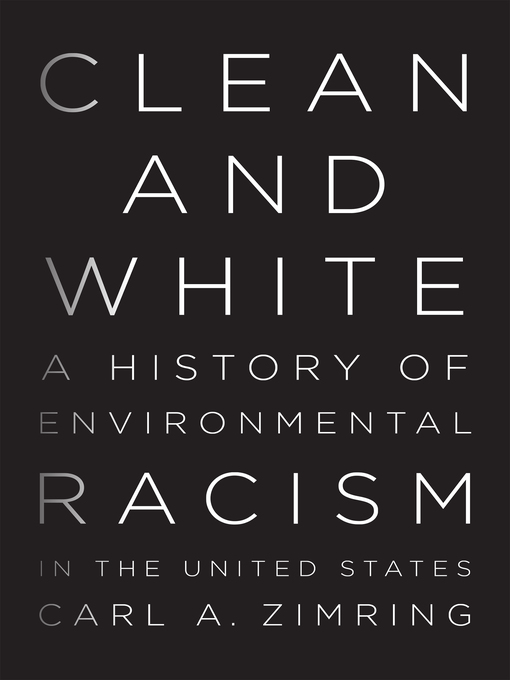
Clean and White
A History of Environmental Racism in the United States
کتاب های مرتبط
- اطلاعات
- نقد و بررسی
- دیدگاه کاربران
نقد و بررسی

November 23, 2015
In this ambitious and occasionally dense volume, Zimring (Cash for Your Trash), associate professor of sustainability studies at the Pratt Institute, tackles environmental racism—his term for “racial discrimination in environmental policy making”—as it relates to waste and waste management. He focuses on historical factors and examines “the social and cultural constructions of race and hygiene in American life from the age of Thomas Jefferson to the Memphis Public Works Strike of 1968.” Sections titled “Dirty Work, Dirty Workers” and “We Are Tired of Being at the Bottom” respectively address sanitation-related businesses begun by immigrants and labor conflicts in the South. Zimring explains that during the late 19th and early 20th centuries, Jewish and Italian immigrants worked in the scrap metal and rag trades, which did not require large capital investments. With equal awareness, he contextualizes the 1968 strike in Memphis, when African-Americans demanding better conditions walked off the job—noting that this strike was what had brought Martin Luther King Jr. to Memphis, where he was assassinated. Zimring’s work can get bogged down by numbers, particularly census data, but readers who can get past the crush of statistics will find his examination enlightening.

November 15, 2015
Zimring (sustainability studies, Pratt Inst.; Cash for Your Trash) begins his valuable history of environmental racism in the United States with an analysis of its origins. He begins with the early Republic and makes a compelling examination of the social constructions of race, ethnicity, and hygiene and sanitation. Early America may have had a pastoral beginning, but even in Thomas Jefferson's time urban problems associated with industrialization began to cause serious health and sanitation issues. Zimring offers a readable history of the various 19th-century urban reformers and their important work to improve the lives of city dwellers and in preventing spreadable diseases. On occasion, he credits the reformers with more than their political impact may have warranted, conflating community protests to address pollution concerns with larger forces challenging "industrial capitalism." The chapters on the history of zoning and race and waste siting are significant contributions to the ongoing discussion of environmental justice in America. VERDICT Essential reading for those interested in social justice and environmental issues.--Amy Lewontin, Northeastern Univ. Lib., Boston
Copyright 2015 Library Journal, LLC Used with permission.

























دیدگاه کاربران